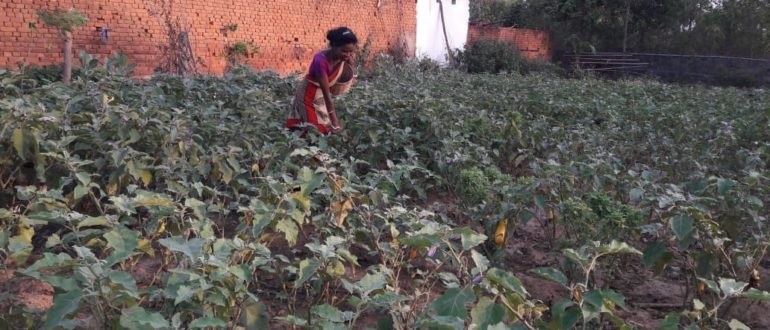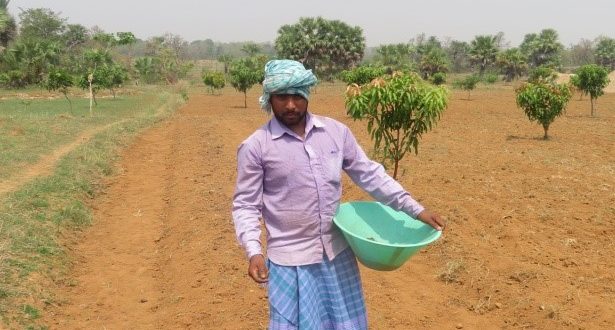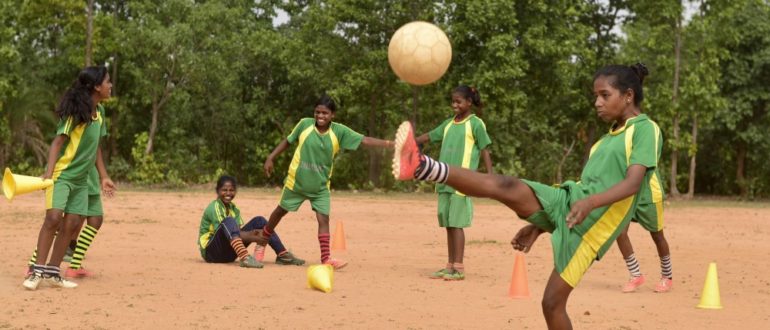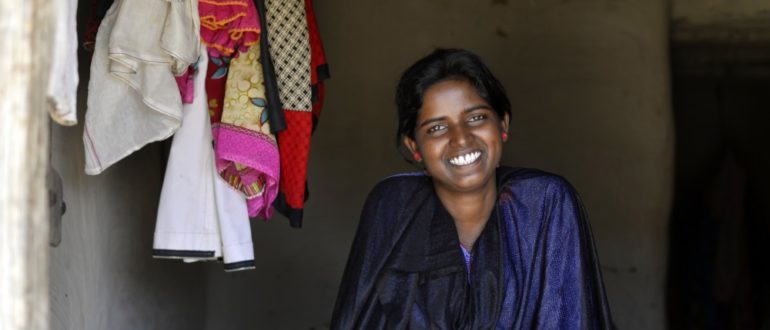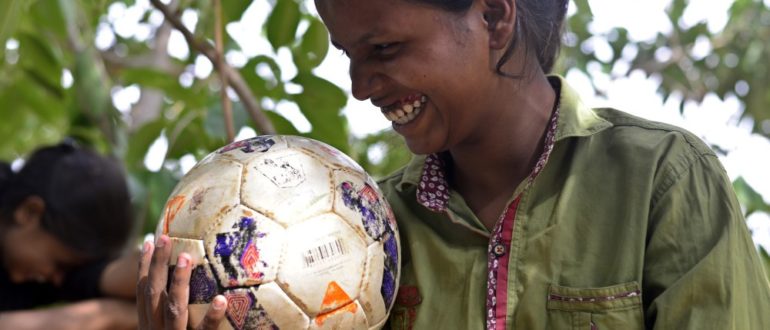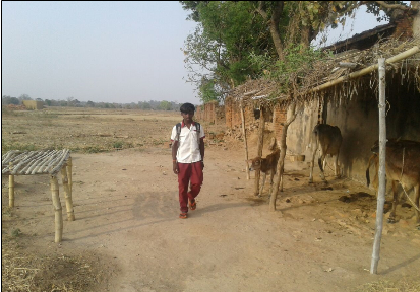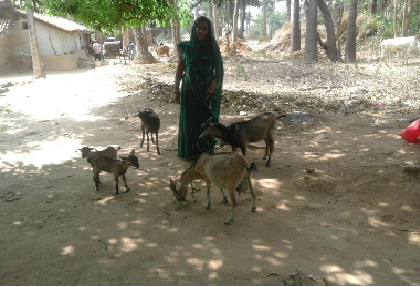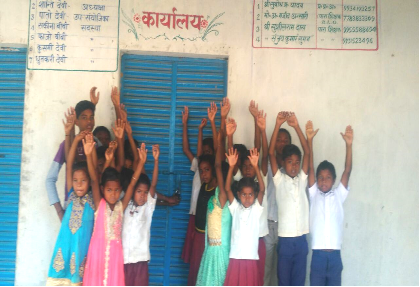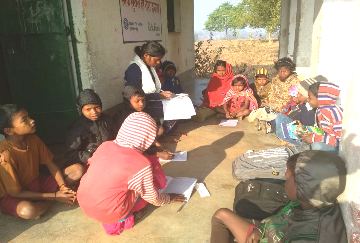Bela Soren is a resident of Jamuniya village and belongs to a tribal community. She used to work as a wage labour in the brick factory. She wanted to continue her studies but the economic condition of her family is so poor. She had to struggle a lot to appear Higher Secondary Examination. Her parents were not capable to afford her higher education and they arranged her marriage with a boy who was not educated.
Bela Soren once attended a meeting of wadi project organised by Chetna Vikas in jamuniya village. After listening to the Wadi farmers and the Project team members she realized that this is the opportunity she was looking for from so many days and if she associates herself with this project she can fulfil her dreams. After the meeting she met the project team member and expressed her interest to cultivate in her waste land. She also said that she wants to meet the Wadi farmers and visit their field to understand the process in a better way. The team member fulfilled her Wish and made her visit other Wadi farmer’s field. She had a land of 1 Acer but it was of no use. It was rocky land no crop can grow in the traditional way. But she decided to cultivate in that land and to fertilize the land in the process told by the team member of Chetna Vikas she started to collect the materials.
Initially Bela had to face many challenges and she did not have money. She only had 2 bull, 2 goats, 2 pigs and 5 hens which was not sufficient for this activity. She used to teach a child of her village to earn for her living and she used to save a little amount from it for any emergency. She used that money and took loan by mortgaging her jewellery and invested the money to prepare the land. She also received the support from Chetna Vikas and NABARD.
Bela has cultivated 7000 plants of flowers in 1 Acer of land and she is earning Rs.200 to Rs. 250 per day. By seeing this success she decided to cultivate vegetables in the rest of the land and she did it without the help of anyone. She encourages other people of her village to come forward and take initiative to cultivate by using the intercropping technique. She always says that Chetna Vikas and NABARD have changed her life.
Bela Soren is very hard working women. She said , “ the training of intercropping has very useful. By using that technique I cultivated flowers in my land, which was not possible without the training. I dreamed to earn for my family and give them a good lifestyle. If someone determines to achieve something, and puts all the efforts, no one can stop her. The association with Wadi project fulfilled my dream and changed my life.”


